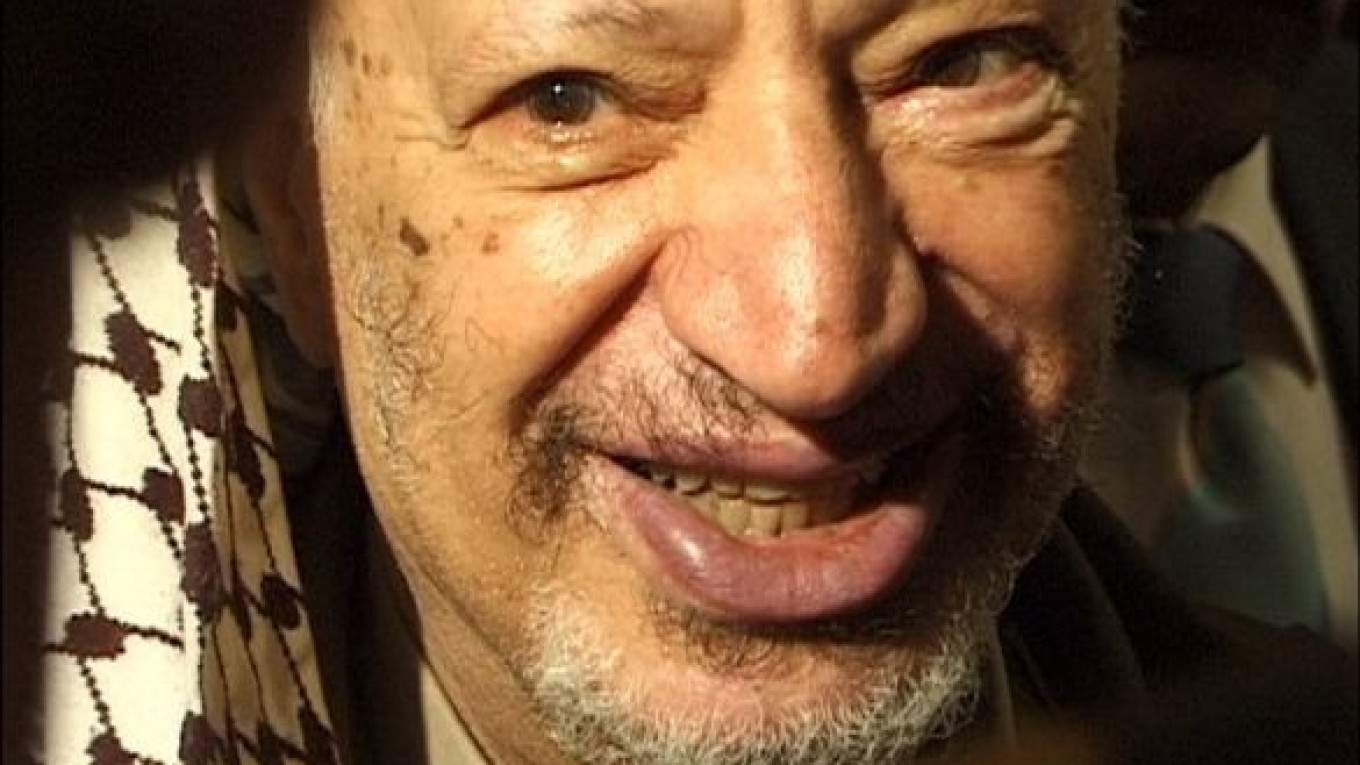RAMALLAH, West Bank — Russia will join an international investigation to determine whether the first Palestinian president, Yasser Arafat, was murdered, said the current Palestinian leader, Mahmoud Abbas.
French and Swiss experts will exhume Arafat's body in Ramallah later this month in an attempt to discover how he died after an Al-Jazeera documentary in July suggested that he was killed by a rare radioactive poison.
"There's full cooperation these days between us and the French investigators and Swiss experts, and also from the Russian government," Abbas told a rain-drenched ceremony Sunday on the eighth anniversary of the death in France of the former guerrilla who led Palestinians' campaign to create a state through years of war and peace.
Abbas asked Foreign Minister Sergei Lavrov for Moscow's help during talks in Jordan last week, Palestinian sources said.
Allegations of foul play have long surrounded the demise of Arafat.
The case returned to the headlines in July when a Swiss institute said it had discovered high levels of the radioactive element polonium-210 on Arafat's clothing supplied by his widow, Suha, who called for the exhumation of her husband's body.
Polonium is the radioactive substance found to have killed former Federal Security Service officer Alexander Litvinenko in London in 2006.
Three French forensic experts are expected to visit Arafat's limestone sepulcher in the West Bank capital of Ramallah on Nov. 20, and investigating magistrates plan to visit four days later, a diplomatic source said.
Related articles:
A Message from The Moscow Times:
Dear readers,
We are facing unprecedented challenges. Russia's Prosecutor General's Office has designated The Moscow Times as an "undesirable" organization, criminalizing our work and putting our staff at risk of prosecution. This follows our earlier unjust labeling as a "foreign agent."
These actions are direct attempts to silence independent journalism in Russia. The authorities claim our work "discredits the decisions of the Russian leadership." We see things differently: we strive to provide accurate, unbiased reporting on Russia.
We, the journalists of The Moscow Times, refuse to be silenced. But to continue our work, we need your help.
Your support, no matter how small, makes a world of difference. If you can, please support us monthly starting from just $2. It's quick to set up, and every contribution makes a significant impact.
By supporting The Moscow Times, you're defending open, independent journalism in the face of repression. Thank you for standing with us.
Remind me later.


